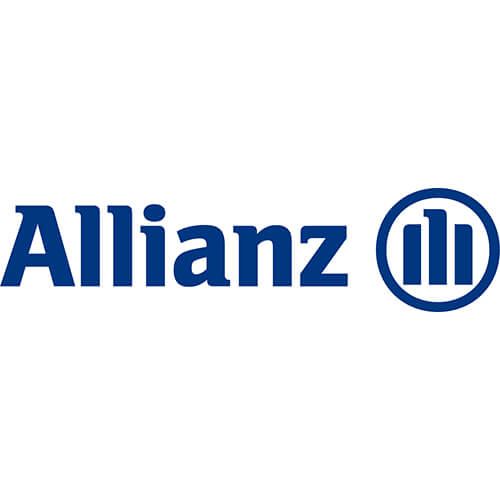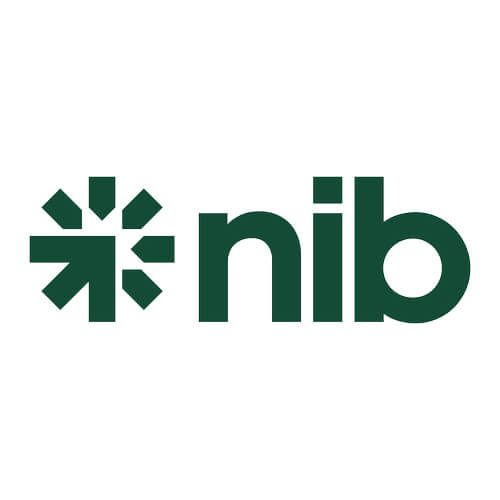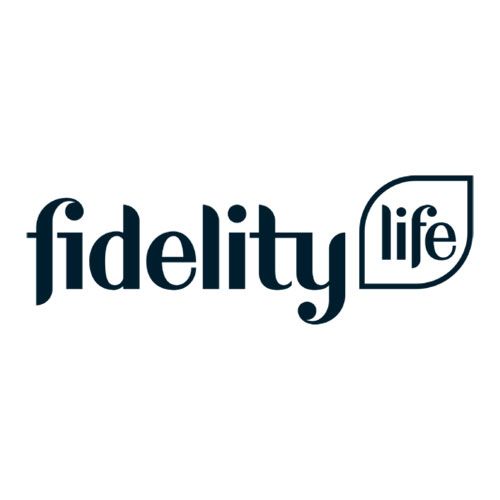The Sandwich Generation: Protecting Parents, Kids—and Yourself
More and more New Zealanders are finding themselves in what researchers call the "sandwich generation"—caring for ageing parents while simultaneously raising children or supporting adult children who remain financially dependent. This demographic represents a growing segment of our population, facing unique pressures that require careful financial planning and strategic insurance coverage.
The sandwich generation phenomenon is intensifying in New Zealand as our population ages and young adults face increasing barriers to financial independence. Understanding the challenges these families face, and how comprehensive insurance planning can provide essential support, is crucial for protecting the wellbeing of multiple generations simultaneously.
Understanding the Sandwich Generation in New Zealand
The sandwich generation refers to adults—typically in their 40s to early 60s—who provide care and support for both ageing parents and their own children. This group encompasses not only those caring for minor children, but increasingly includes parents supporting adult children who have returned home or never achieved full financial independence.
In New Zealand, this demographic is expanding due to several converging trends. Our population is ageing rapidly, with older adults aged 65+ years projected to increase from 16.6% of the population in 2023 to 28.2% by 2073. Simultaneously, young adults are remaining financially dependent longer due to housing costs, education expenses, and challenging employment markets.
Recent international research provides insight into the scope of this challenge. Studies show that nearly one quarter of adults who provide care for at least one parent over 65 also care for at least one child under 18. These sandwich generation caregivers are younger on average (46 years) compared to non-sandwich caregivers (56 years), yet they provide approximately 75 hours of caregiving per month while typically maintaining full-time employment.
The financial implications are substantial. US research indicates that 47% of sandwich generation adults report times when their household was unable to meet essential expenses due to caregiving costs in the past 12 months, while 90% report making lifestyle changes or financial decisions because of caregiving responsibilities. While this data comes from American families, the financial pressures of dual caregiving are remarkably similar across developed countries with aging populations and rising living costs, making these findings highly relevant to New Zealand's sandwich generation families.
The Unique Pressures of Dual Caregiving
Members of the sandwich generation face a complex array of pressures that extend far beyond simple time management. The emotional, physical, and financial demands of caring for multiple generations simultaneously create stress levels that can significantly impact personal health, career progression, and family relationships.
Financial Strain and Economic Impact
The economic burden of dual caregiving is often underestimated. Sandwich generation caregivers frequently find themselves managing multiple sets of expenses: their own household costs, contributions to elderly parents' care, and ongoing support for adult children. Common financial challenges include cutting back on other expenses (34% of sandwich caregivers), contributing less to emergency savings (26%), and taking on additional debt (26%).
In New Zealand, where the median age is projected to rise from 37.7 years in 2025 to 43 years by 2050, and where the percentage of people 60 years and older is expected to increase from 18% to 29%, these pressures will only intensify.
Workplace and Career Implications
Research shows that 69% of sandwich generation caregivers work for pay, compared to 54% of other caregivers. However, this employment comes with unique challenges. Many sandwich caregivers report making phone calls or providing care during work time (62%), taking time in lieu or working flexitime (18%), and taking leave to provide care (nearly one-sixth).
The "trilemma" of being caregivers to two generations while maintaining workforce participation creates particular stress around career development and financial security. This is especially challenging in New Zealand's competitive employment market, where job flexibility and understanding employer policies regarding caregiving responsibilities can vary significantly.
Emotional and Health Consequences
The emotional toll of sandwich generation caregiving is substantial. Research indicates that 77% of family caregivers report emotional stress, 43% have sleeping problems, and 88% say they need more support. Women caregivers typically report greater emotional and mental strain than men, despite men now representing 55% of sandwich generation caregivers—a significant shift from historical patterns.
The health implications extend beyond stress. Caregivers are more susceptible to obesity, asthma, chronic obstructive pulmonary disease, and arthritis. They're also more likely to report inability to see a doctor due to cost, creating a concerning cycle where those providing care struggle to maintain their own health.
The Role of Insurance in Supporting Sandwich Generation Families
Comprehensive insurance planning becomes particularly crucial for sandwich generation families, who face multiple scenarios that could destabilise their financial security. Understanding how different insurance products can provide support across various caregiving situations enables more strategic planning.
Private Health Insurance: Accelerating Access to Care
New Zealand's public health system, while comprehensive, often involves significant wait times for non-urgent procedures and specialist consultations. For sandwich generation families managing multiple health concerns across generations, private health insurance can provide crucial advantages.
Private medical insurance offers faster access to diagnostics, surgery, and specialist treatment, which becomes particularly valuable when managing both elderly parents' health issues and children's medical needs. The ability to schedule treatments and consultations more efficiently can reduce the time sandwich caregivers spend coordinating medical care, allowing them to maintain better work-life balance.
Current data shows that the percentage of New Zealanders with private health insurance rose from 32% in 2022 to 37% in 2023, reflecting growing concerns about healthcare access and affordability. For sandwich generation families, this investment can provide peace of mind and practical benefits across multiple family members.
Trauma Insurance: Providing Financial Flexibility During Crisis
Trauma insurance provides a lump sum payment upon diagnosis of specified critical illnesses, offering financial flexibility when families face serious health crises. For sandwich generation families, trauma insurance becomes particularly valuable because it addresses not just medical costs, but the broader financial implications of serious illness.
When a sandwich generation caregiver or their elderly parent receives a trauma diagnosis, the insurance payout can be used to address multiple needs: taking time off work to provide care, hiring professional help, modifying homes for accessibility, or simply providing a financial buffer during a period of reduced earning capacity.
The flexible nature of trauma insurance payments makes them especially suitable for sandwich generation families, who often face complex, interconnected financial needs when health crises occur.
Income Protection and Disability Insurance: Securing Financial Stability
Income protection and disability insurance provide crucial support for sandwich generation families by replacing income when the primary earner cannot work due to illness or injury. This protection becomes particularly important for families supporting multiple generations, where the loss of income could affect not just immediate household expenses, but ongoing support for both elderly parents and dependent children.
Modern income protection policies can often be structured to provide benefits when the policyholder needs to take extended time off work to care for family members. This feature recognises that family caregiving responsibilities can significantly impact earning capacity, even when the caregiver themselves remains healthy.
For sandwich generation families, income protection insurance provides security that enables them to prioritise family care needs without jeopardising their long-term financial stability or their ability to support multiple generations.
Life Insurance: Protecting Multiple Generations
Life insurance for sandwich generation families serves broader purposes than traditional coverage. Beyond protecting immediate family members, life insurance can ensure that ageing parents or dependent adult children aren't left in financial difficulty if something happens to the primary income earner.
Comprehensive life insurance planning for sandwich generation families often involves considering the ongoing needs of elderly parents who may depend on the family for financial support, as well as adult children who haven't yet achieved full financial independence. This multi-generational perspective requires careful calculation of coverage amounts and beneficiary arrangements.
Strategic Planning for Complex Family Structures
Effective insurance planning for sandwich generation families requires a comprehensive approach that considers the interconnected needs of multiple generations. This planning extends beyond insurance products to encompass practical systems and strategies that support family resilience.
Creating Family Contingency Plans
Sandwich generation families benefit from developing detailed contingency plans that address various potential scenarios. These plans should consider what would happen if the primary caregiver became unable to work for extended periods, if elderly parents suddenly needed full-time care, or if adult children faced unexpected financial crises.
Effective contingency planning involves open communication with all family members about expectations, capabilities, and resources. This includes discussing elderly parents' preferences for future care, understanding adult children's plans for achieving independence, and identifying extended family members who could provide support during emergencies.
Financial Communication and Boundaries
One of the most challenging aspects of sandwich generation caregiving involves navigating financial relationships across generations. Many families avoid these conversations until crisis situations force difficult decisions under pressure.
Proactive financial communication should address elderly parents' retirement resources and care preferences, adult children's timelines and plans for financial independence, and clear boundaries around ongoing financial support. These conversations, while sometimes uncomfortable, can prevent confusion and conflict during stressful periods.
Building Emergency Resources
Sandwich generation families face higher risks of unexpected expenses and should prioritise building robust emergency funds. Financial experts recommend maintaining 3-6 months of expenses in readily accessible savings, but sandwich generation families might consider expanding this cushion given their additional responsibilities.
Emergency resources should account not just for household expenses, but for potential care-related costs, travel expenses for family emergencies, and temporary support for adult children or elderly parents facing their own crises.
The Evolving Nature of Family Support
The traditional concept of the sandwich generation is evolving as demographic trends reshape family structures. Researchers now describe the situation as more like a "panini" than a sandwich—messier, with layers of responsibility that extend beyond simple age-based categories.
Extended Support Networks
Modern sandwich generation families often support not just minor children and elderly parents, but adult children in their 20s and 30s, grandchildren, and sometimes great-grandparents. This expanded support network requires more sophisticated financial planning and insurance coverage.
Current statistics show that 48% of sandwich generation caregivers are caring for children over 18, while 30% care for children with chronic conditions. Nearly half (48%) are caring for grandchildren, highlighting the complexity of modern family support structures.
Gender Dynamics and Shared Responsibility
The demographic profile of sandwich generation caregivers is shifting, with men now representing 55% of caregivers compared to historical patterns where women dominated caregiving roles. However, women caregivers continue to report higher emotional burdens and more hours spent caregiving, suggesting that while participation has become more balanced, the intensity of involvement may still differ.
This shift has implications for insurance planning, as families can no longer assume traditional gender roles in caregiving and income generation. Comprehensive insurance planning must consider scenarios where either partner might become the primary caregiver or income earner.
Market Trends and Insurance Considerations
The New Zealand insurance market is experiencing changes that affect sandwich generation families' planning options. Recent market analysis indicates stabilising conditions with more competitive premiums, and for risks with good claims records, there are generally no premium increases at renewal in 2025.
This improved market environment creates opportunities for sandwich generation families to review and potentially expand their insurance coverage without facing the significant premium increases experienced in recent years. The life insurance market is forecast to grow from $5.9 billion in gross written premiums in 2024 to $8.3 billion by 2029, driven partly by rising healthcare costs and concerns about financial security.
However, affordability concerns linked to cost-of-living pressures could contribute to underinsurance among families who need coverage most. Sandwich generation families, who already face competing financial priorities, may need to work with experienced insurance brokers to structure coverage that provides essential protection within budget constraints.
Technology and Coordination Tools
Modern sandwich generation families can leverage technology to manage complex caregiving responsibilities more efficiently. Digital tools can help coordinate medical appointments, track medications, manage shared calendars, and maintain important documents across multiple generations.
Shared digital calendars help families coordinate various appointments and care responsibilities while avoiding scheduling conflicts. Cloud-based document storage ensures that important insurance policies, medical records, and legal documents are accessible to trusted family members during emergencies.
These technological solutions don't replace comprehensive insurance planning, but they can make it easier to manage the administrative aspects of multi-generational care while ensuring that insurance coverage remains current and appropriate for changing family needs.
Professional Support and Expert Guidance
Given the complexity of sandwich generation family needs, professional guidance becomes particularly valuable. Insurance brokers who understand multi-generational planning can help families structure coverage that addresses various scenarios while remaining affordable.
Expert guidance is especially important because sandwich generation families often face time constraints that make it difficult to research and compare insurance options thoroughly. Professional brokers can explain policy details, help with claims processes, and provide ongoing support as family circumstances change.
The investment in professional guidance often pays for itself through more appropriate coverage selection, better understanding of policy benefits, and more efficient claims processing when coverage is needed.
Looking Ahead: Planning for an Ageing Society
As New Zealand's population continues ageing, with the percentage of older adults aged 85+ years expected to increase from 1.8% in 2023 to 6.3% by 2073, the challenges facing sandwich generation families will likely intensify. Planning proactively for these demographic changes can help families prepare for evolving care needs.
This preparation involves not just insurance planning, but considering how family structures, care preferences, and support systems might need to adapt as parents age and children mature. Families who start these conversations early and build flexible support systems will be better positioned to handle future challenges.
Building Resilience for Multi-Generational Care
Being part of the sandwich generation presents unique challenges that require thoughtful planning and comprehensive support systems. With the right insurance strategy and practical systems in place, families can create financial safety nets that protect everyone they care about—children, parents, and themselves.
The key to successful sandwich generation planning lies in recognising that traditional insurance approaches may not adequately address the complex, interconnected needs of families caring for multiple generations. By working with knowledgeable professionals and taking a holistic approach to financial protection, sandwich generation families can build the resilience needed to navigate their caregiving responsibilities with confidence.
At DormFIN, we understand the complex challenges facing sandwich generation families in New Zealand. Our experienced team can help you develop insurance strategies that address your family's unique multi-generational needs, whether you're just beginning to navigate dual caregiving responsibilities or looking to strengthen existing protection. We're here to help you create the peace of mind and financial security that enables you to care for your loved ones without compromising your own wellbeing or future security.
For personalised guidance on insurance planning for sandwich generation families, contact DormFIN to arrange a consultation that fits your schedule—at your home, a convenient location, or online.









